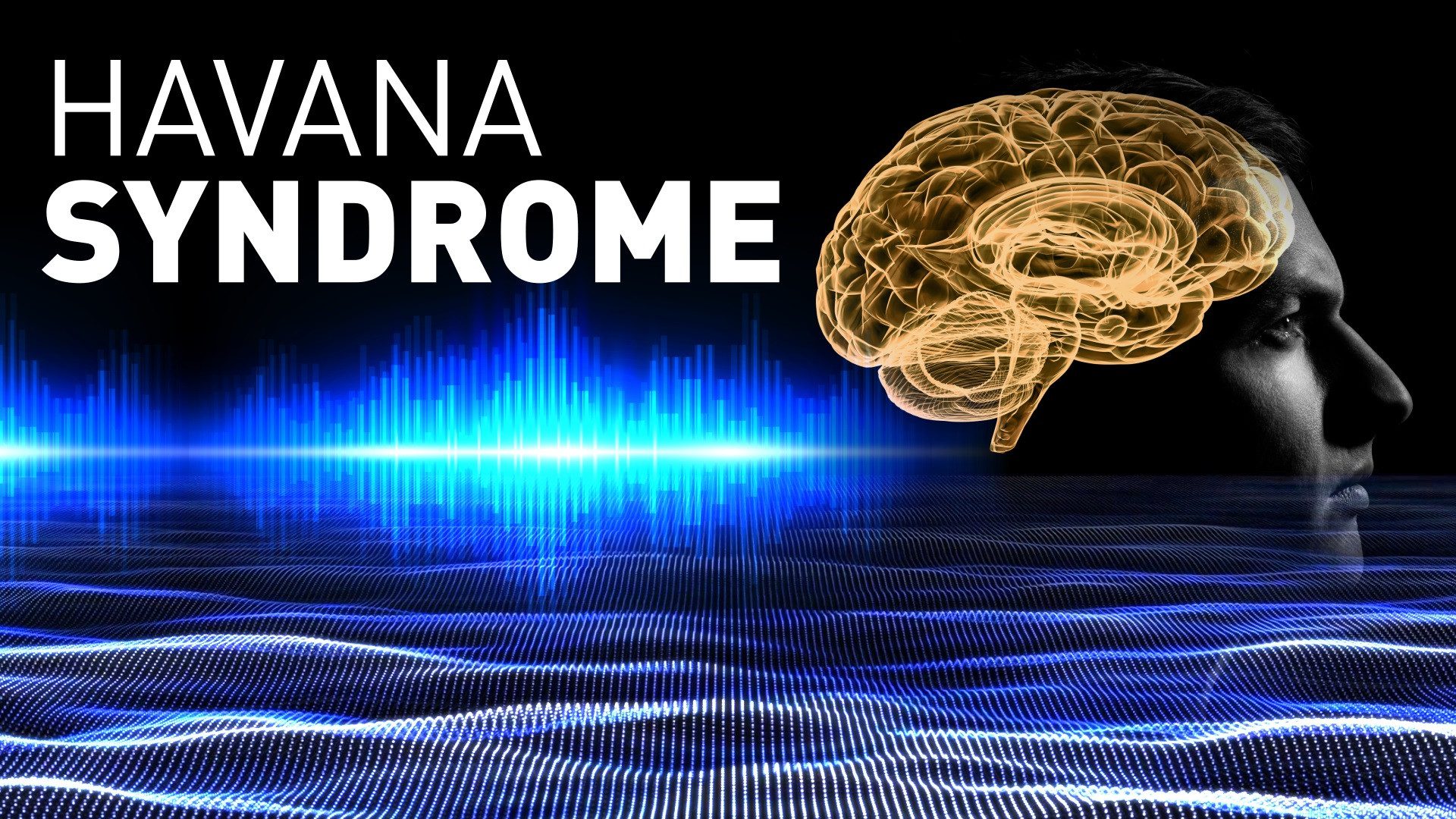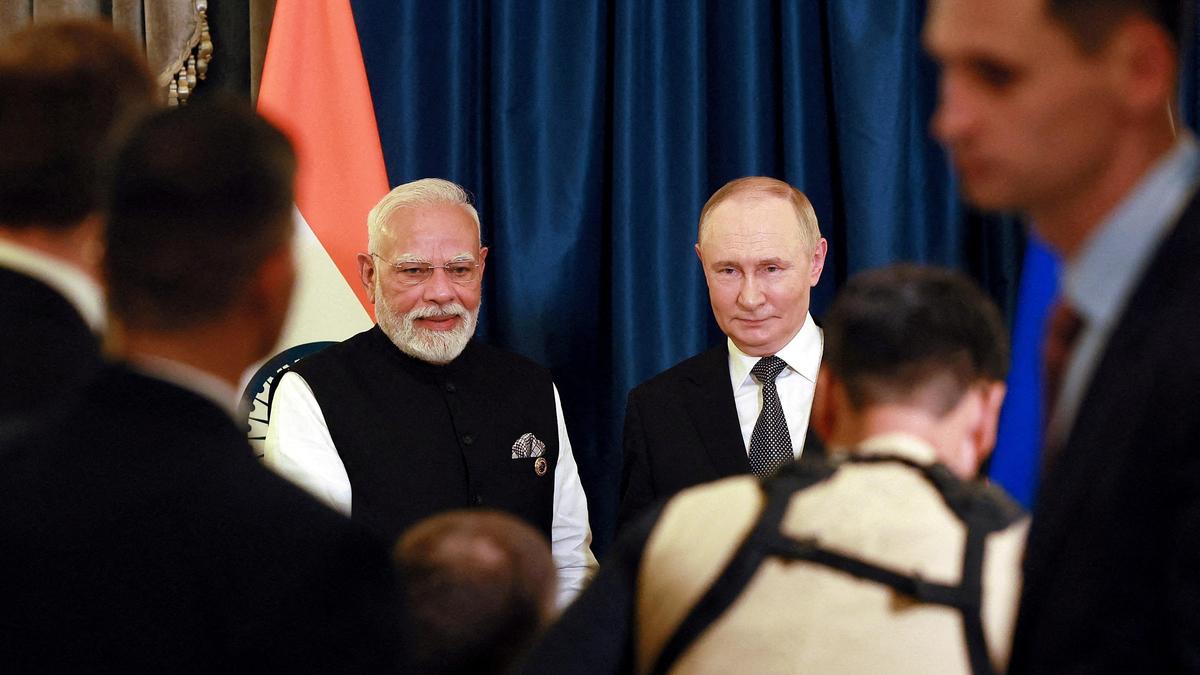What is Havana Syndrome: A Diplomatic Illness Shrouded in Mystery

Havana Syndrome, a mysterious illness causing debilitating symptoms in diplomats, continues to baffle medical professionals and international relations experts. This blog delves into the history of Havana Syndrome, explores potential causes, and analyzes the recent link to Russian intelligence.
What is Havana Syndrome?
Havana Syndrome, also known as Unexplained Acute Sensory and Motor Injuries (USAMI), first emerged in 2016. U.S. diplomats stationed in Havana, Cuba, reported experiencing a range of unusual symptoms, including:
- Nausea
- Dizziness
- Headaches
- Hearing loss
- Balance problems
- Vision issues
- Cognitive difficulties
Havana Syndrome News: Initial Reports and Speculation
The bizarre nature of the symptoms and the reports of strange sounds before the onset of illness fueled speculation of an attack by a foreign power, possibly sonic weapons or some form of directed energy. The term “Havana Syndrome” stuck, though cases have since been reported in other countries like China and Germany.
Havana Syndrome KGB Theories: The Search for a Culprit
Initially, suspicion fell on the Cuban government or even rogue elements within the KGB, the former Soviet intelligence agency. However, no conclusive evidence has been found to support these theories. Cuba has repeatedly denied involvement, further complicating the investigation.
Havana Syndrome Russia: A Recent Shift in Focus
A recent report by a U.S. intelligence agency suggests a possible link between Havana Syndrome and Russian intelligence activities. While the exact details of the report remain classified, it marks a notable shift in the focus of the investigation.
Challenges in Identifying the Cause of Havana Syndrome
Several factors make it difficult to determine the cause of Havana Syndrome:
- Lack of Consistent Symptoms:** The range of symptoms reported by victims makes it difficult to establish a clear medical profile.
- Difficulty in Replicating Symptoms:** Scientists haven’t been able to recreate the conditions that trigger the illness, hindering research efforts.
- Geopolitical Tensions:** The international political climate makes it challenging to conduct a truly objective investigation.
Is Havana Syndrome a Weaponized Attack?
The possibility of a weaponized attack remains a subject of debate. Some experts believe a directed energy weapon could be the cause, while others favor a more conventional explanation like environmental toxins or psychological factors.
Investigating Havana Syndrome: Ongoing Efforts
The U.S. government has allocated resources to investigate Havana Syndrome. This includes:
- Establishing a task force dedicated to the investigation.
- Providing medical treatment and support to affected individuals.
- Conducting research to understand the cause of the illness.
Havana Syndrome News: The Impact on Diplomats
Havana Syndrome has had a significant impact on diplomats and their families. The fear of being targeted and the debilitating symptoms can lead to long-term health problems and career disruptions.
The Need for Transparency and International Cooperation
To effectively address Havana Syndrome, international cooperation and transparency are crucial.
- Sharing Information: Sharing information between countries where similar cases have occurred can help advance the investigation.
- Scientific Collaboration: Collaboration between scientific institutions could accelerate research efforts to identify the cause.
- Public Awareness: Raising public awareness about Havana Syndrome can encourage victims to come forward and seek help.
The Future of Havana Syndrome: A Puzzle Awaits Solution
Havana Syndrome remains a puzzle waiting to be solved. While the recent report linking it to Russia is a significant development, further investigation is needed to determine the cause and hold those responsible accountable.
Conclusion: A Global Effort to Unravel the Mystery
Havana Syndrome is a serious medical issue with far-reaching implications for the diplomatic community and international relations. Addressing this complex issue requires a global effort, scientific collaboration, and unwavering dedication to finding the truth. Only then can we ensure the safety of diplomats and prevent future occurrences of this mysterious illness.
Havana Syndrome: Debunking Myths and Exploring Potential Causes
The mystery surrounding Havana Syndrome continues to grip the world. Following our previous exploration of the illness, this section digs deeper into the prevalent myths, delves into potential causes beyond the recent Russia connection, and explores the ongoing medical and scientific research efforts.
Havana Syndrome News: Debunking Common Myths
Several myths have circulated regarding Havana Syndrome, hindering understanding and fueling unnecessary fear. Here’s a breakdown of some common misconceptions:
-
Myth 1: Havana Syndrome is Contagious: There’s no evidence to suggest Havana Syndrome is contagious. It doesn’t spread through person-to-person contact.
-
Myth 2: Havana Syndrome is a Mass Psychogenic Illness: This theory suggests the illness is a shared delusion. However, the wide range of documented symptoms and the presence of objective findings in some cases weaken this claim.
-
Myth 3: Havana Syndrome is Only a Diplomatic Illness: While initially reported by diplomats, cases have emerged among CIA personnel, journalists, and even ordinary citizens, suggesting broader potential causes.

Havana Syndrome KGB vs. Other Theories: Exploring Alternative Explanations
While the recent link to Russia is a significant development, other explanations for Havana Syndrome remain under investigation. Here are some alternative theories:
-
Sonic Weapon Theory: The initial theory proposes a directed energy weapon emitting inaudible sound waves that could cause the observed symptoms. However, conclusive evidence to support this theory remains elusive.
-
Environmental Toxin Exposure: Exposure to environmental toxins, such as pesticides or mold, could potentially explain some of the reported symptoms. However, the consistency of the symptoms across different locations weakens this theory.
-
Infectious Disease: Some experts posit a novel infectious agent could be responsible. Ongoing research into this possibility continues.
-
Psychological Factors: The stressful environment experienced by diplomats, coupled with the fear of attacks, could potentially contribute to some of the symptoms. However, this theory doesn’t explain the documented objective findings in some cases.
Havana Syndrome Russia: Demystifying the Recent Report
The recent report linking Havana Syndrome to Russia has sparked widespread interest. It’s important to understand some key points:
-
Limited Details: The specifics of the report remain classified, making it difficult to assess the strength of the evidence linking Russia to the illness.
-
Motivation Unclear: Even if Russia is involved, their motives remain unclear. Was it a deliberate attack, an unintended consequence of a new technology, or something else entirely?
-
Need for Further Investigation: The report serves as a starting point, not an endpoint. Further investigation is needed to solidify the link and identify specific individuals or methods used.
Medical Research on Havana Syndrome: Unveiling the Underlying Cause
Medical professionals are actively researching Havana Syndrome to understand its cause and develop effective treatment protocols. Here’s a glimpse into some ongoing research efforts:
-
Neurological Studies: These studies aim to identify potential damage to brain structures that could explain the reported symptoms. Imaging techniques like MRIs are being used to investigate potential abnormalities.
-
Auditory System Investigations: Research is focusing on the auditory system to determine if targeted sound waves could be the culprit. This includes detailed examinations of the inner ear and auditory processing pathways.
-
Toxicology Investigations: Toxicology studies are exploring the possibility of exposure to environmental toxins. Blood and tissue samples are analyzed to identify potential harmful substances.
-
Infectious Disease Research: Researchers are investigating if a novel infectious agent could be responsible. This includes analyzing blood samples for potential pathogens.

The Road to Recovery: Supporting Affected Individuals
Individuals suffering from Havana Syndrome require comprehensive medical care and psychological support.
-
Medical Management: Treatment focuses on managing the specific symptoms experienced by each patient. This may include medications, physical therapy, and cognitive rehabilitation.
-
Psychological Support: The psychological impact of Havana Syndrome can be significant. Counseling and support groups can help individuals cope with the emotional distress.
Havana Syndrome News: A Call for Transparency and Global Cooperation
Addressing Havana Syndrome effectively requires transparency and international cooperation. Here’s what needs to happen:
-
Information Sharing: Sharing information between countries where similar cases have occurred can accelerate the investigation.
-
Scientific Collaboration: Collaboration between scientific institutions worldwide can expedite research efforts to identify the cause.
-
Open Communication: Governments need to be transparent about their investigations and findings, encouraging trust and public cooperation.
Havana Syndrome presents a complex medical and diplomatic challenge. While the recent Russia connection is a significant development, further investigation and international collaboration are crucial to finding a solution.
Potential Impact on International Relations:
The mystery surrounding Havana Syndrome has the potential to strain international relations.
- Increased Tensions: Accusations against Russia, if substantiated, could lead to heightened tensions between the US and Russia.
- Loss of Trust: A lack of transparency and cooperation could erode trust between nations, hindering diplomacy.
- Deteriorating Global Security: Unveiling the cause and holding those responsible accountable is essential for ensuring the safety of diplomats and maintaining global security.
The Role of Technology in Havana Syndrome:
Technology plays a crucial role in both the investigation and potential explanations for Havana Syndrome.
- Investigative Tools: Advanced technology like brain imaging and sophisticated audio equipment can aid researchers in identifying the cause of the illness.
- Weaponization of Technology: The possibility of a directed energy weapon raises concerns about the weaponization of technology and the need for international regulations.
- Cybersecurity Concerns: The potential use of technology in an attack underscores the importance of cybersecurity measures to protect diplomats and government personnel.
Ethical Considerations in Havana Syndrome Research:
Ethical considerations are paramount in researching Havana Syndrome.
- Informed Consent: Individuals participating in research studies must be fully informed of the risks and benefits involved.
- Patient Privacy: The privacy of those affected by Havana Syndrome must be protected while conducting research and disseminating findings.
- Balancing Transparency and National Security: Finding the right balance between transparency and national security concerns is crucial when sharing information about the investigation.
The Path Forward: A Call to Action
Havana Syndrome serves as a stark reminder of the vulnerabilities faced by those who serve their countries abroad. Addressing this challenge requires a multifaceted approach:
- Prioritizing Medical Research: Continued research is crucial to definitively identify the cause of Havana Syndrome and develop effective treatment protocols.
- International Cooperation: Governments worldwide need to collaborate openly and share information to accelerate investigation and identify those responsible.
- Diplomatic Measures: Diplomatic channels should be used to address concerns and de-escalate tensions between nations.
- Public Awareness: Raising public awareness about Havana Syndrome can encourage victims to come forward and seek help, while also fostering support for ongoing research efforts.
Conclusion: A Global Mystery Demands a Global Response
Havana Syndrome is a global mystery demanding a global response. By prioritizing medical research, fostering international cooperation, and ensuring transparency, we can unravel the cause of this illness, hold those responsible accountable, and ensure the safety of diplomats worldwide. Only through a collaborative effort can we prevent future occurrences of this debilitating and enigmatic illness.
Resources:
- https://en.wikipedia.org/wiki/Havana_syndrome
- https://www.aljazeera.com/news/2024/4/1/pentagon-reveals-senior-official-reported-symptoms-of-havana-syndrome
- https://indianexpress.com/article/explained/explained-global/havana-syndrome-russian-intelligence-unit-9245485/
- https://www.bbc.com/news/world-us-canada-68706317
- https://www.washingtonpost.com/national-security/2023/03/01/havana-syndrome-intelligence-report-weapon/
For more national and international political and defense news: https://waddupindia.in/category/politics/







5 thoughts on “What Is Havana Syndrome: The Mystery Illness Plaguing Diplomats – News Update 2024”
Thank you for your sharing. I am worried that I lack creative ideas. It is your article that makes me full of hope. Thank you. But, I have a question, can you help me?
I have read your article carefully and I agree with you very much. This has provided a great help for my thesis writing, and I will seriously improve it. However, I don’t know much about a certain place. Can you help me?
Thank you for your sharing. I am worried that I lack creative ideas. It is your article that makes me full of hope. Thank you. But, I have a question, can you help me?
I don’t think the title of your article matches the content lol. Just kidding, mainly because I had some doubts after reading the article.
Can you be more specific about the content of your article? After reading it, I still have some doubts. Hope you can help me. https://accounts.binance.com/bg/register-person?ref=V2H9AFPY